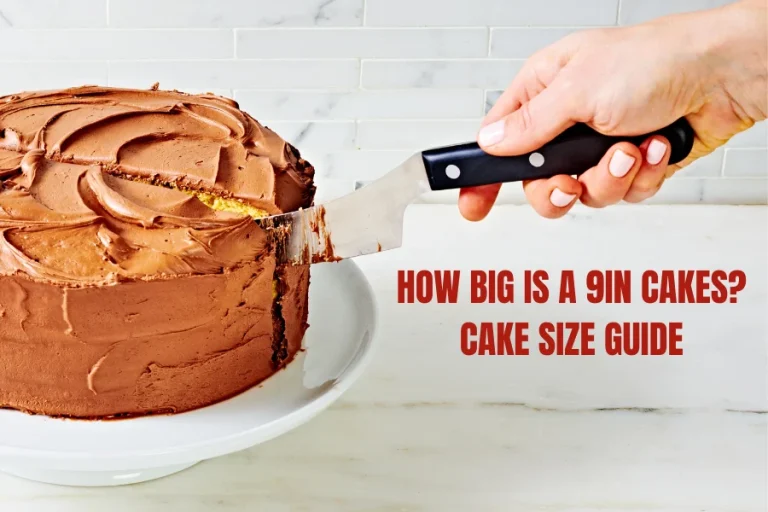For those in love with baking but pressed for time, the question is always, “Can You Freeze Cake Batter?” It is an exciting idea to be able to prepare cake batter way in advance to save it for when needed, considering today’s busy lives.
This article shall answer this and provide you with step-by-step guides on how to store your cake batter. You need helpful tips together with step-by-step instructions that will help you freeze the cake batter quickly and efficiently. Don’t miss out on the opportunity to explore this method of saving time and effort while still having delicious cakes.
Can You Free Cake Batter?
Are you preparing cake batter and suddenly busy? Or maybe you want to prepare the cake batter in advance and bake it afterward. So is it possible to freeze cake batter?
The answer is yes. You can absolutely freeze the cake batter for later use. By following the proper procedures while freezing it, cake batter can be preserved for a specific amount of time. Then you just need to defrost it, and you are good to go in baking an attractive cake.
Pros and Cons of Freezing Cake Batter
To gain a full understanding of “Can you freeze cake batter”, we shall discuss the benefits and drawbacks of freezing cake batter.
Pros
- Save time: You can prepare the cake batter in advance and use it when needed.
- Convenience: Easily have cake batter ready for unexpected occasions.
- Reduce waste: Store excess batter instead of throwing it away.
- Preparation for events: You can prepare the cake batter for parties or get-togethers, ensuring you can quickly bake fresh cakes.
Cons
- Batter quality: Batter may lose some of its original rise and texture.
- Defrosting: You will need time, and the batter may not be as uniform as usual.
- Potential for spoilage: Batter can become spoiled or contaminated if not stored properly.
How to Free Cake Batter?
Freezer cake batter can be a convenient way to save time and effort so that you can have lovely cakes every time you wish to. Here are the steps for freezing cake batter explained in detail.
Step 1: Choose the right type of cake batter that can be frozen
Not all cake batter is created equal, and each freezes well differently. Flours with high-fat content, such as gateaux cake or chocolate cake flour, tend to freeze better than flours with high sugar or water content. Moreover, sponge or chiffon cake batter with whipped egg whites may not keep well upon freezing and thawing. Mug cake batter such as almond flour, honey, or strawberry mug cake also cannot be frozen as this may change the texture of the batter.
Step 2: Prepare cake batter
Next, prepare the cake batter according to the usual recipe. Make sure the batter is well mixed and smooth for better freezing.
Step 3: Choose the appropriate containers
You must prepare an airtight container or heavy-duty freezer bag to store the batter. The container or bag should be clean and dry to avoid damaging the frozen batter. If you use a heavy-duty freezer bag, choose a thick and durable bag to prevent leaks or punctures.
Step 4: Divide the cake batter
Just pour the thawed batter into the required pan or baking sheet and bake the same as per the instructions of the original recipe. However, be careful while the cake is baking because it may take a different time compared to the fresh batter. For example, you can divide the batter into individual cupcake pans and then place them in individual bags or smaller containers.
Step 5: Label containers
You need to write the time and type of batter in each container or bag. This will help you keep track of the time it took to freeze and the type of batter, making it more convenient to defrost and use later.
Step 6: Freeze the cake batter
Finally, freeze the batter. You just need to put the box or bag of batter in the freezer. If you use bags, make sure that the batter bags are laid flat to save space and freeze more evenly. As for containers, make sure they are upright and not stacked too tightly to allow air to circulate them.
How to Thaw Frozen Cake Batter?
Many people wonder not just “Can you freeze cake batter?”, but also how to properly thaw frozen cake batter for the cake to turn out as fluffy and delicious as it should. Further, I will explain how to quickly defrost cake batter properly.
Thawing the batter
This method is recommended for thawing the said pies since you only have to take the frozen pie batter from the freezer to the refrigerator. The cake batter must be thawed before usage and preferably, it should be defrosted the night before or 6-8 hours before use. Never defrost at room temperature since this is the perfect setting that allows bacteria to build up or go bad.
Check the consistency
After defrosting, you would need to check out the consistency of the batter. There may be a separation of the layers; this is quite normal when the frozen cake batter is defrosted. You just need to mix gently to return the batter to its condition as before. You can adjust the batter by adding a small quantity of water or milk if it appears too thick.
Baking the cake
Then you can start baking as usual. Take the batter, pour it onto the prepared pan or baking sheet, and bake as illustrated in the first part of this recipe. However, make sure you observe the cake as it is baking, this should not take as long as it will take to bake a cake from fresh batter.
Common Mistakes to Avoid
After knowing the answer to the question, “Can you freeze cake batter?”, you should “avoid” the following:
- Overmixing: When preparing the cake mix for freezing, do not overmix the dough, this will cause the cake to be compact. But turn all the ingredients in a way that you achieve a good mix of batter and get a homogeneously mixed cake batter.
- Use old or spoiled ingredients: For best results, use fresh ingredients when preparing the dough. This ensures that the dough retains its quality after freezing.
- Freeze too much batter: If you’re unsure about the freezeability of a particular cake batter, you should test a small batch first. This allows you to make any necessary adjustments before freezing a larger amount.
FAQs
1. Can batter that contains eggs be frozen?
Yes. However, not all cake batters mixed with eggs freeze well. Cake batters made from whipped egg whites, such as chiffon cakes or sponge cakes, may spoil when frozen. Meanwhile, high-fat batter, like muffin or cookie batter, freezes better.
2. How should frozen cake batter be baked?
In case you want to bake frozen cake batter, the batter has to be thawed, preferably in the refrigerator, so that it can take the whole night to thaw. Following defrosting let the batter rest at room temperature for about half an hour. It is also important to stir the batter gently to create an even mixture. Then you just bake the cake per normal recipes. Don’t forget to check the temperature to make sure it’s done!
3. How much time is it possible to freeze cake batter?
Usually, the cake batter is kept in the freezer for up to three months. To maintain the best quality, you should use the batter within one to two months. Don’t forget to label the correct freezing date on the container to keep track, and always thaw the batter in the refrigerator before baking for the best texture.
Final Thought
Freezing cake batter is a great solution for those who love baking but are running short on time. It saves you time while still allowing you to have wonderful cakes whenever you desire one. Follow the instructions and tips shared in this article to effectively preserve the cake batter. I hope that through this, you have been able to answer your question, “Can you freeze cake batter?” and prepare to bake some mouthwatering desserts!



